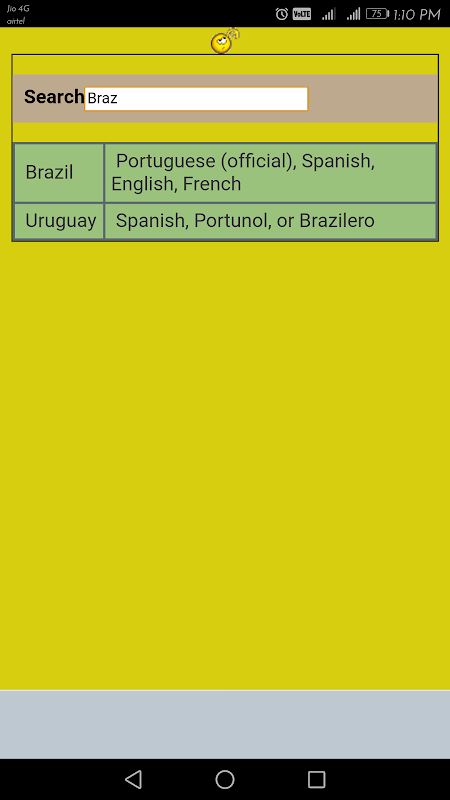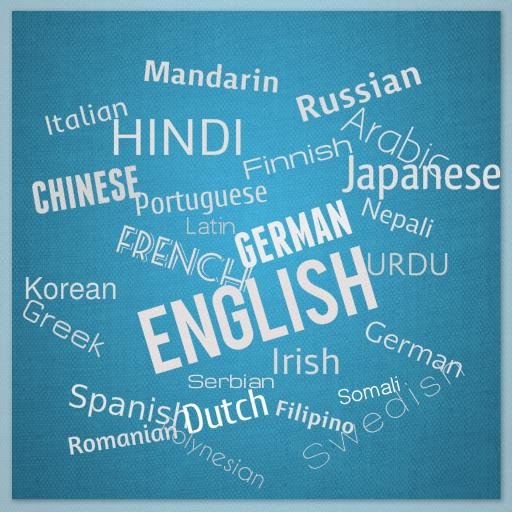This app provides the information of what languages people speak in each country


| Name | World Official Languages |
|---|---|
| Publisher | Islet Developers |
| Genre | Education |
| Size | 2MB |
| Version | 0.0.3 |
| Update | February 22, 2025 |
| Get it On | Play Store |
| Report | Report Apps |
Preview
Exploring the World Official Languages
What makes a nation’s identity unique? Is it the cultural landmarks, the cuisine, or the traditions? While many elements play a role, language is undeniably one of the most profound factors that define and unify nations. Official languages, in particular, are not only vital tools of communication but also serve as cultural and political symbols that often tie a country’s identity together.
What exactly is an official language? At its core, an official language is a language designated by law or constitution to be used for government operations, legal proceedings, and official documentation. But its significance goes beyond bureaucracy—it impacts everything from national unity to global diplomacy.
This blog dives deep into the concept of official languages. We’ll explore their role worldwide, examine countries with the most official languages, discuss the benefits and challenges multilingual countries face, and reflect on how they shape culture and national identity. By the end, you’ll have a clear understanding of why official languages are so much more than just words on paper.
What Are Official Languages, and Why Do They Matter?
Official languages are a unique feature of governance. When a government designates a language as “official,” it ensures that this language is used for essential tasks such as creating legal documents, running government meetings, or providing education. Countries may choose one, two, or even dozens of official languages depending on their history, population, and policies.
For example, English may serve as the sole official language in nations like Australia and New Zealand, while countries like India and South Africa have embraced multilingualism. This diversity reflects the complexity of ensuring inclusivity in linguistically diverse populations.
Interestingly, official languages may not always align with what people speak at home. For instance, many countries adopt a colonial language (e.g., French or Portuguese) as an official medium of communication despite the majority of their population speaking indigenous or local languages. This choice is often based on establishing a common language for unity and administrative purposes, even if it sparks larger cultural debates.
Countries With the Most Official Languages
The linguistic landscape around the world is fascinating, but some nations stand out for their multilingual governance.
India
India is home to an unparalleled linguistic diversity. While Hindi and English are the official languages used at the national level, the Indian Constitution recognizes 22 scheduled languages like Bengali, Tamil, and Marathi. These languages cater to various states, ensuring representation for millions of speakers.
But why so many? India’s state-reorganization system divides states based on linguistic lines. This structure guarantees that regional languages can thrive while Hindi acts as a unifying thread across state borders. English, however, remains a vital link in international diplomacy and trade.
South Africa
South Africa is a shining example of balancing inclusivity through language. With 11 official languages, including Zulu, Afrikaans, Xhosa, and English, the country uses language to bridge its diverse cultural and ethnic groups.
Post-apartheid, South Africa intentionally adopted a multilingual constitution to promote unity and equality among its citizens. This framework acknowledges the importance of indigenous languages, addressing historical imbalances caused by colonial dominance.
Switzerland
Switzerland, despite being a smaller nation, has four official languages: German, French, Italian, and Romansh. This multilingual framework enables the Swiss government to cater to its culturally diverse cantons (regional areas). Each language reflects a different part of the country’s rich European heritage while being carefully balanced to avoid favoritism.
Luxembourg
Not far from Switzerland, Luxembourg showcases linguistic diversity with three official languages—Luxembourgish, French, and German. Citizens seamlessly switch between these languages depending on the context, demonstrating that multilingualism can be part of national identity without losing clarity in communication.
The Benefits and Challenges of Multilingualism in Governance
Multilingual governance offers immense benefits but comes with complexities.
Benefits of Multilingualism
- Representation and Inclusivity
- Countries with multiple official languages can better represent their citizens. By recognizing linguistic diversity, they ensure that minorities feel included in national conversations.
- Economic Opportunities
- Multilingualism often results in stronger global trade relationships. For example, Canada’s bilingualism (English and French) facilitates international business with both Anglophone and Francophone countries.
- Cultural Preservation
- Designating indigenous or regional languages as official ensures they are preserved and protected for future generations.
Challenges of Multilingualism
- Administrative Complexity
- From translating documents to hiring multilingual bureaucrats, managing governance in multiple languages can become costly and time-consuming.
- Language Politics
- Choosing which languages to designate as official can be contentious, especially in countries where linguistic groups vie for recognition or regional dominance.
- Communication Barriers
- While inclusivity is a goal, having multiple official languages may hinder smooth communication if people aren’t proficient in all languages.
How Official Languages Impact National Identity and Culture
Languages are more than functional tools—they are cultural treasures. By granting a language “official” status, governments elevate its importance, often turning it into a symbol of national identity.
For instance, Ireland’s decision to adopt Irish Gaelic as an official language reflects its commitment to cultural revitalization, even though most citizens primarily speak English. Similarly, New Zealand’s recognition of Te Reo Māori underscores the nation’s dedication to honoring its indigenous roots.
However, official languages can deepen divides if policies don’t strike the right balance. A compelling example is Belgium, where tensions between Flemish and French speakers provide insight into how language policies can shape socio-political landscapes.
Ultimately, official languages play a dual role—they unify citizens by providing a shared framework, yet they celebrate cultural diversity by giving equal footing to unique linguistic traditions.
One Click to Language Insights
Curious about the languages people speak around the world? Our app makes it easy to explore linguistic diversity. Whether it’s discovering the official languages of South Africa or finding out what languages are trending in Switzerland, the app provides detailed insights at your fingertips.
Key features include:
- Search by Country: Instantly find official and popular languages for any location using our smart search bar.
- Cultural Context: Learn why certain languages are official and how they impact society.
- Personalized Experience: Access recommendations tailored to your cultural and linguistic interests.
Effortlessly bridge the gap between language and understanding today by giving it a try!
[Discover the World’s Languages Now]
Why Understanding Official Languages Matters
Official languages are windows to a world of culture, governance, and community. They reflect a nation’s history, keep traditions alive, and enable inclusive societies. But they also present challenges, from navigating multilingual governance to tackling language-based inequalities.
By understanding how languages function within nations, we can foster stronger global ties and celebrate the diversity that makes our world so unique.
Want to deepen your knowledge about languages and their significance around the globe? Unlock linguistic insights with our app and take the first step toward enriching your understanding of the world.
Download World Official Languages
You are now ready to download World Official Languages for free. Here are some notes:
- Please check our installation guide.
- To check the CPU and GPU of Android device, please use CPU-Z app











